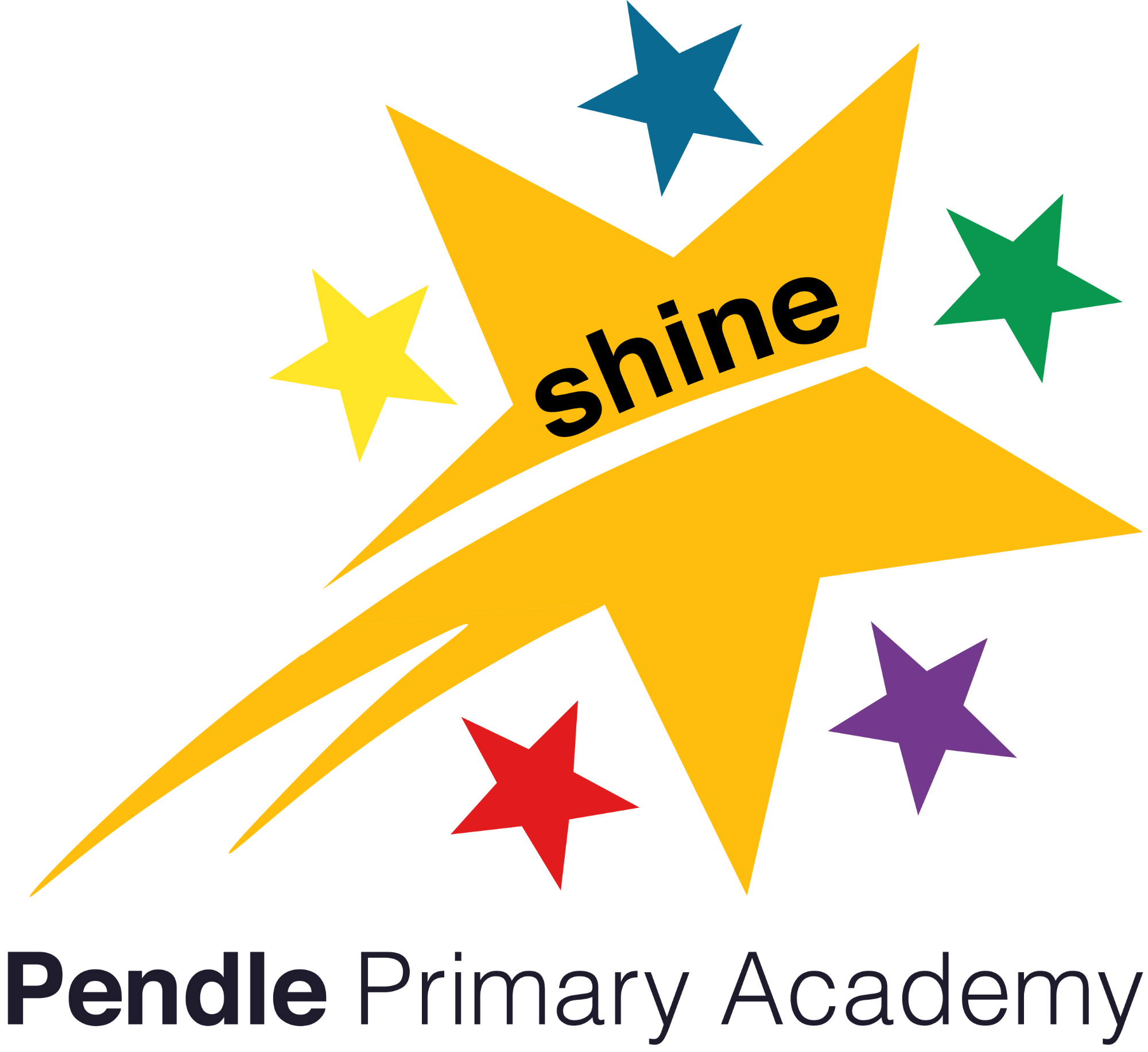
Maths
At Pendle Primary Academy, our school's Mathematics curriculum is built upon the White Rose Maths Scheme, employing a Mastery approach to ensure deep, secure, and lasting understanding for all pupils. The curriculum is designed to systematically develop three key areas of mathematical proficiency:
- Fluency: We focus on developing children's speed and accuracy with fundamental mathematical concepts and procedures.
- Reasoning: Children are taught to logically think through problems, identify patterns, make connections, and articulate their mathematical arguments.
- Problem Solving: Pupils apply their mathematical knowledge to a variety of routine and non-routine problems, developing resilience and strategic thinking.
A detailed curriculum is mapped out using White Rose Maths resources to enable us to deliver a ‘scheme-assisted not scheme-driven’ approach. The curriculum is mapped out across each term, ensuring longer time is prioritised for key topics and to ensure all pupils acquire and demonstrate a sufficient grasp of the mathematics relevant to their year group.
Each lesson is carefully structured to facilitate mastery and collaborative learning using ‘anchor tasks’ to start every lesson getting the children focussed in their Maths learning, developing the mathematical vocabulary for the topic. These lesson starters are a focal point for the initial exploration of the concept within the lesson or topic. This task is crucial for building mathematical vocabulary and enhancing Oracy skills, as children are encouraged to discuss their thinking and articulate their understanding precisely.
While following the robust structure provided by the White Rose Maths Scheme, our teachers utilise their professional expertise to adapt and design the lessons. This ensures the content is tailored to the specific needs and learning styles of our children, maximising engagement and attainment.
What can you expect to see in a Maths lesson in Pendle Primary Academy?
Teachers plan carefully crafted lessons to provide a step-by-step, conceptual journey through mathematics, engaging pupils in reasoning and development of deep mathematical thinking. Maths lessons across the school begin with an anchor task – a problem given to the class that provides an opportunity to activate prior knowledge which requires the pupils to collaborate and ask questions of each other. It promotes an environment for pupils to productively struggle and persevere in problem solving, allowing the children to practise the ‘Growth Mindset’ skills. The learning for that lesson is shared in the form of a ‘Learning Target’ and problems are selected and designed using ‘Intelligent Practice’ and ‘Variation Theory’. Teachers avoid mechanical repetition and create appropriate ways of practising the thinking processes required with increasing creativity. Mini-plenaries and ‘live marking’ are encouraged throughout the lesson when appropriate to address any misconceptions. Children work through dedicated White Rose Maths booklets. This looks different across key stages, where Year 1 use a very practical approach to steps to help embed skills, whilst Year 5 and 6 often use their block to spread out their steps to allow children to cover mathematical skills in more depth. Children are actively encouraged to collaborate with their peers. This peer-to-peer interaction supports different ways of thinking and helps cement understanding. Every lesson includes a variety of question styles using varied fluency tasks, challenging children to apply their skills in different contexts.
EYFS
Maths in the Early Years Foundation Stage (EYFS), which follows the White Rose Maths curriculum and scheme used across the school, is taught through a blended approach of explicit instruction and continuous provision. Children participate in a daily 30-minute session designed to explicitly teach mathematical skills and ensure curriculum coverage. This session is structured as follows:
Counting Activity: The session begins with a counting activity which takes various engaging forms such as singing, chanting, active learning, or using resources.
Whole-Class Skill Instruction: The class moves on to the main part of the session, where an explicit mathematical skill is taught to all children.
Following the whole-class input, children transition into small ability groups. They work with staff members who have carefully planned lessons tailored to the specific needs of that group. Resources and manipulatives are routinely used within these small groups to support and solidify learning. Within these sessions, children are encouraged to develop their mathematical vocabulary through sentence stems, use a range of different resources and answer key questions relating to topics. Groups are regularly adjusted based on how well children are accessing the learning, ensuring they receive appropriate challenge or support. The small group size facilitates mini in-session assessments, allowing staff to immediately adapt their strategies based on the children's responses.
Our children practice and embed skills through independent access to various provision stations, both indoors and outdoors. These activities are adapted from the Reception curriculum. To support number skill development, we integrate mathematics and nursery rhymes. Specific rhymes are linked to the current maths topics and are sung in provision, whole-class, and small-group sessions. The EYFS team maintains a clear progression document detailing the rhymes for each half-term.
Key Skills
Separate from Maths lessons, children have Key Skills sessions in the afternoon. These sessions are a targeted intervention within our Mathematics provision, designed to solidify foundational arithmetic abilities. They are short, focused session that runs for 20-30 minutes, typically taking place 3-4 times a week during the afternoon. The sessions have a fluency and arithmetic focus. They provide children with frequent, dedicated opportunities to practise and re-learn the key basic mathematical procedures: addition, subtraction, multiplication, and division. Key Skills sessions offer a valuable chance for targeted teaching and revisiting concepts. Children are exposed to varied fluency tasks to ensure a greater depth of learning, challenging them to apply basic skills in different formats and contexts. The content for Key Skills is highly focused, using specific targets created from the current Maths curriculum. Crucially, the sessions primarily cover targets and concepts taught in the previous term. This systematic spiral approach ensures previously learned material is kept fresh, gaps are quickly addressed, and a strong, enduring arithmetic foundation is built before new, more complex topics are introduced.
Maths Facts
To support children in retaining basic Maths knowledge, children across Year 1 to Year 6 are given a Maths Facts sticker every Monday, which will be stuck in their Brainbox. This sticker contains a single, basic maths skill to be learned and practised during the week. The skills chosen provide crucial extra opportunities to practise the fundamental facts and knowledge necessary to support and underpin the learning in their main Maths lessons (e.g., number bonds, times tables, division facts).
On Mondays, when the new sticker is issued, teachers dedicate time to teach the skill to all children in class. This instruction uses resources, practise questions, and discussion to ensure every child fully understands the skill before taking it home. Children are encouraged to practise the skill at home throughout the week using any methods they find effective. At the end of the week, children are formally tested on the facts or skill outlined on that week's sticker.
How does the school intervene to help those having difficulty to make sure they keep up?
Pupils that are experiencing difficulties and have misconceptions are identified through immediate formative assessment and addressed with rapid ‘Same-Day intervention’. The ‘Same-Day intervention’ is delivered by the teacher or TA before the next lesson – this may be during the afternoon, in assembly time or it might be the next morning during Morning Challenge time or Key Skills. This style of intervention is in place to enable the pupils to ‘keep up’ rather than ‘catch up’. It addresses any points in the lesson that were not understood or provide an opportunity for pre-teaching so that all pupils are ready for the next lesson.
How are we developing systems for tracking attainment and progress in Maths?
For each unit, teachers have a whole class target card in which they monitor how each child in class, are working through the unit block. At the end of the unit, children complete an ‘end of unit’ mini test and these scores are added to the target card. Alongside this score, teacher will give a ‘starred’ outcome. Each target has three stars. One star dated, represents that the child is beginning to work towards that target, they may require a lot of support, have some misconceptions and/or make frequent mistakes when applying those skills independently. Two stars dated indicates that a child is able to apply that skill independently but may make occasional mistakes that they are not able to recognise and correct independently. Three stars shows that the child has securely met that target. To allow teachers to keep track of misconceptions and areas of weakness within a unit or for certain children, there is a section for teachers to record these to inform the Key Skills sessions.
